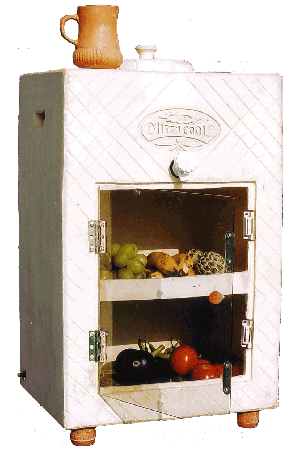Villgro’s Unconvention 2011: Key Takeways
Editor’s Note: This article was adapted from a post on the Villgro Fellows Blog.
The two-day Unconvention 2011 hosted by Villgro in Chennai, India earlier this month brought together some of the brightest minds working in social enterprise in India. In particular, the two morning plenary sessions were excellent, drawing out some of the major questions of our space.
The first morning panel, entitled Social Entrepreneurship 2020, explored the future of social entrepreneurship – whether there will be a need for it to exist in 10 years – and, if so, how it will grow, and how investors can facilitate that growth. It featured P. Pradeep, chief investment officer at Aavishkaar; Sushmita Ghosh, president emeritus of Ashoka Innovators for the Public; R. Ramraj, chair of Innovation & Entrepreneurship panel in the Confederation of Indian Industries; Laura Parkin, executive director of the Wadhwani Foundation and co-founder of the National Entrepreneurship Network, and Harish Hande, Magsaysay Awardee, MD, SELCO, India; and Gavin McGillivray, global head, Private Sector Department, DFID.
Aavishkar’s Pradeep weighed in that “we believe that social enterprises are business opportunities in their own right and, as such, the ’social’ in social enterprises can be dropped.” Laura Parkin took this a step further, bringing up the point that 10 years from now, what have been dubbed social enterprises may not exist since they would all be regular, for-profit enterprises. She predicted that some of today’s social enterprises may morph into non-profit organizations. She also encouraged everyone to consider themselves “changemakers” working toward the common goal of change, rather than entering discussions with specific labels.
In dealing with investors, Harish Hande underscored the importance of entrepreneurs choosing the right capital for their ventures, and not succumbing to unhealthy pressure from investors. While Hande’s voice was the most strident on this issue, panelists from “The Science and Art of Raising Capital” session had similar advice for social entrepreneurs. Anand Shrivastav, chairman and managing director of Beam Capital Management, urged entrepreneurs to do reference checks on venture capital firms (in a manner similar to VCs performing due diligence on entrepreneurs). Another insight for entrepreneurs in raising capital was that an entrepreneur is the trustee of investor’s money – so take only as much money as you need, not what you can raise.
The second plenary, was entitled “Mainstreaming Your Social Business,” and a number of panelists explored how social enterprises and NGOs can collaborate with corporations for “co-creation” of value (a concept pioneered by Base of the Pyramid guru, the late Professor C.K. Prahalad.) “Mainstreaming” is similar to Ashoka’s Hybrid Value Chain, in that it involves a corporation and a socially-minded business working together in such a way that both sides benefit and the social impact is magnified. Mainstreaming can be very powerful, quickly bringing together the efficiency, skill sets, and scale of large corporations with the innovations and local knowledge of social enterprises or NGOs.
This panel was moderated by consulting firm Innovation Alchemy, and two specific examples were explored: the collaboration between Microsoft Research and Operation ASHA to address the default rates of tuberculosis patients in Indian slums, and the joint clean energy project between BP, Swayam Shikshan Prayog, and First Energy.
Let’s take the first example. The problem that Operation ASHA set out to tackle was “tuberculosis default,” or when patients stop taking the medicine in the middle of a protracted six-month cycle. According to Duflo and Banerjee’s Poor Economics, most people, especially the poor, struggle with following-up on preventive health initiatives (like immunization for children.) The default starts a chain reaction of patients developing MDR (Multi Drug Resistance) that leads to a geometric progression of newly infected tuberculosis patients with MDR. In partnership with Microsoft Research, Operation ASHA’s solution was to eliminate TB default using a biometrics-based text-messaging infrastructure, which monitors patient doses by fingerprint. When a patient misses a dose, the system notifies nurses by SMS, who swing into corrective action. Panelists brought out some notable points, including that in order for the collaboration to be effective, the teams must be thoroughly integrated, to the point where a passerby in the office cannot tell who belongs to which company.
 Later in the conference, the Villgro Awards ceremony celebrated social enterprise rock stars.
Later in the conference, the Villgro Awards ceremony celebrated social enterprise rock stars.
Some notable awards were the Lifetime Achievement Award, awarded to D R Mehta of Jaipur Foot, and the Grassroots Innovator Award winner, Mitticool. Mitticool is a clay refrigerator (pictued left) that does not require electricity and keeps food fresh, working on the principle of evaporation. The ingenious inventor Mansukh Bhai Prajapati is a traditional clay craftsman from rural Gujurat, and he has surpassed innumerable obstacles to create the business that he has today. This is his inspiring story. Prajapati accepted his award in person and gave an acceptance speech in Hindi, in which he described his vision for his innovation to touch lives in all small, remote villages in India that lack electricity.
This last award summed up the real flavor of Unconvention, and indeed, of what social enterprise seeks to accomplish-not only to create innovations that change lives, but to empower those who have the most intuitive, effective answers-those who have always faced those challenges we seek to solve.
- Categories
- Uncategorized
